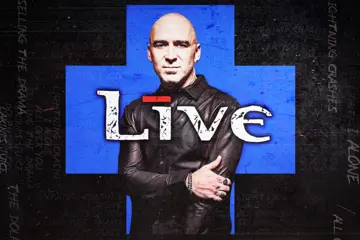 Bruce Springsteen
Bruce SpringsteenThe long-running Bruce Springsteen fanzine, Backstreets, will be no more. The end days of Backstreets comes in protest of ticket costs in the US, particularly "dynamic pricing" - a strategy installed when demand is high, and businesses like Ticketmaster or airlines bump the prices to meet demand.
Backstreets has been running since 1980. Christopher Phillips, Publisher and Editor-in-Chief, has announced the end of the zine in an editorial.
"After 43 years of publishing in one form or another, by fans for fans of Bruce Springsteen, it’s with mixed emotions that we announce Backstreets has reached the end of the road," Phillips wrote.
Phillips added, "If you read the editorial Backstreets published last summer in the aftermath of the U.S. ticket sales, you have a sense of where our heads and hearts have been: dispirited, downhearted, and, yes, disillusioned. It's not a feeling we're at all accustomed to while anticipating a new Bruce Springsteen and the E Street Band tour. If you haven't yet read that editorial ("Freeze-out," July 24, 2022), or the crux of Springsteen's response to Rolling Stone in November, we encourage you to do so; we don't want to rehash those issues, but we stand behind our positions and points.
"There’s no denying that the new ticket price range has in and of itself been a determining factor in our outlook as the 2023 tour approached — certainly in terms of the experience that hardcore fans have been accustomed to for, as Springsteen noted, 49 years. Six months after the on-sales, we still faced this three-part predicament: These are concerts that we can hardly afford; that many of our readers cannot afford; and that a good portion of our readership has lost interest in as a result."
Don't miss a beat with our FREE daily newsletter
Pitchfork reports that the "dynamic pricing" tickets to Bruce Springsteen's 2023 tour offered through early access are priced between $1,000 and $5,000.
Last year, Ticketmaster defended the dynamic pricing model by stating that it's about “capturing more value for the artist at the initial onsale”.
“Promoters and artist representatives set pricing strategy and price range parameters on all tickets, including dynamic and fixed price points,” a Ticketmaster spokesperson told The Music.
“Ticketmaster has created analytical tools that use historical and real-time data to help quantify supply and demand to determine prices. The promoters and artist representatives then determine the specific pricing for their shows.
“The biggest factor that drives pricing is supply and demand. When there are far more people who want to attend an event than there are tickets available, prices go up. If prices were under market value at the onsale, they frequently resell on the secondary market at higher price points."
Additionally, Ticketmaster’s dynamically priced tickets are labelled “In Demand Tickets” so as not to confuse or mislead patrons.















